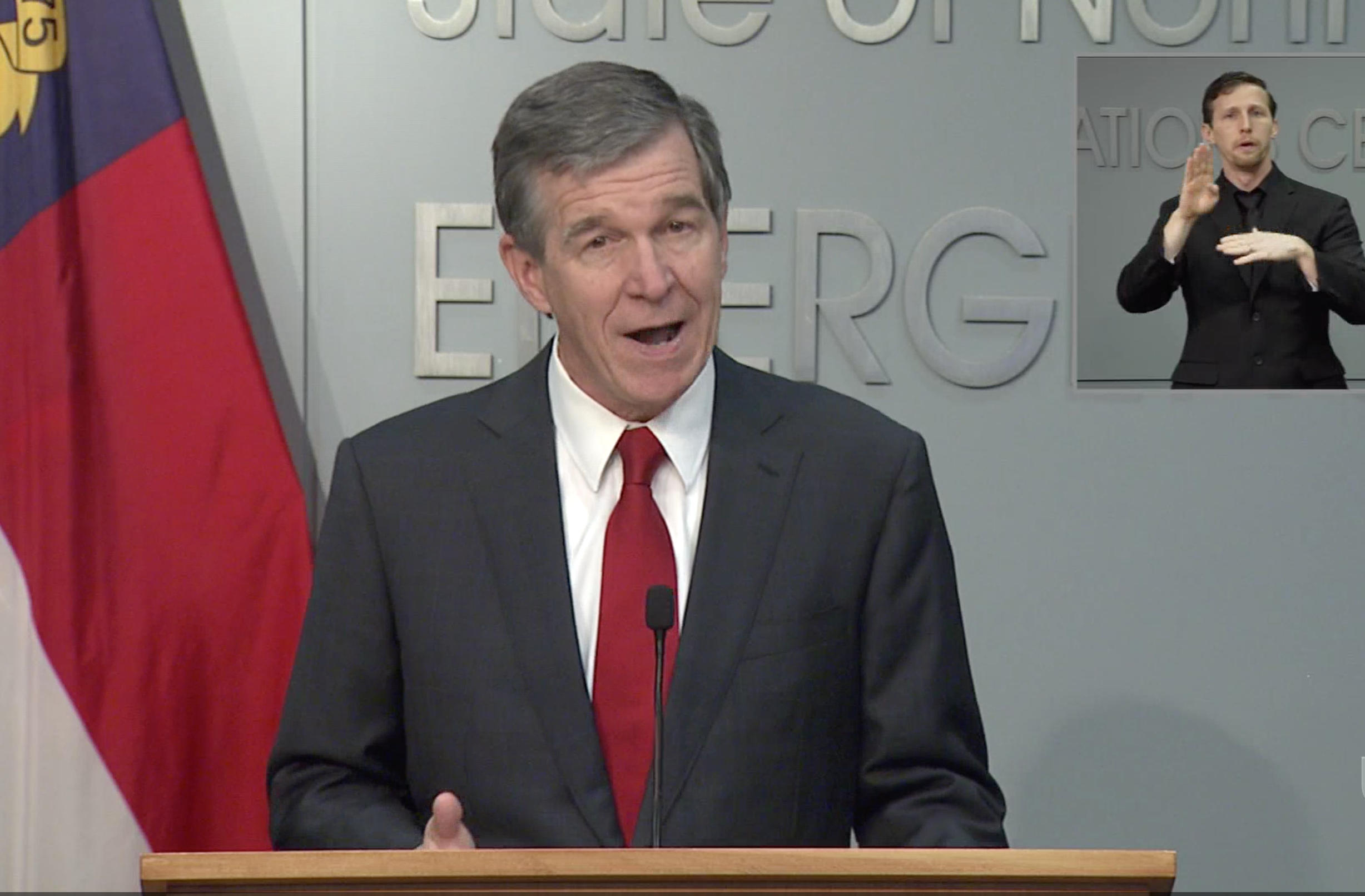Stimulus package covers eviction moratorium, rental assistance
Published 9:09 pm Wednesday, December 30, 2020

- Gov. Roy Cooper speaks during a press conference Wednesday.
|
Getting your Trinity Audio player ready...
|
The COVID-19 economic stimulus bill President Donald Trump signed into law Sunday provides North Carolina with an estimated $700 million in emergency rental assistance funds and extends the Centers for Disease Control’s federal residential eviction moratorium to Jan. 31.
The CDC implemented its eviction moratorium on Sept. 4, and it was set to expire on Dec. 31. That order prohibits landlords from evicting qualified tenants for nonpayment of rent.
In order to be protected by the eviction moratorium, a property tenant or lessee must provide their landlord with a completed declaration form that shows all of the following points: The tenant has used best efforts to obtain all available government assistance for rent or housing; the resident either expects to earn no more than $99,000 in annual income in 2020 or no more than $198,000 if they’re filing a joint tax return, or was not required to report any income in 2019 to the IRS, or received a stimulus check by way of the CARES Act; the resident is unable to make a full rent payment or housing payment due to substantial loss of household income, loss of compensable hours of work or wages, a layoff, or extraordinary out-of-pocket medical expenses; the resident is making an effort to submit partial payments that are as close as possible to the full amount due; and the eviction would render the individual homeless or force the individual to move into a congregate living facility.
Last week, Gov. Roy Cooper announced the extension of North Carolina’s eviction moratorium, which Cooper previously said was implemented to clear up “a lot of confusion” about the CDC’s moratorium.
Notably, Cooper’s executive order states that landlords, in any effort to initiate an eviction, must provide the resident with a blank copy of the aforementioned CDC declaration form. If a landlord receives a completed declaration and still thinks an eviction is necessary, the landlord needs to submit a response to the court explaining why eviction proceedings should continue even with the CDC protections in place.
“Too many families are living on the edge, trying to do the right thing, but left with impossible choices,” Cooper said during a press briefing Wednesday. “This order will help them stay in their homes, which is essential to slowing the spread of the virus.”
The National Low Income Housing Coalition estimated that North Carolina will receive $700 million for emergency rental assistance from the stimulus bill. Cities and counties with populations greater than 200,000 are eligible to apply direct allocations of that money from the Treasury Department.
“When North Carolina receives (the $700 million), I plan to work with the General Assembly to help disperse it quickly and effectively,” Cooper said.
N.C. HOPE
In late August, Cooper introduced N.C. HOPE, a $117 million program that provides rent and utility payment assistance for renters affected by the COVID-19 pandemic. The program stopped taking applications as of Nov. 11. Cooper said more than 21,000 applicants have been told that they will receive rent or utility payment help totaling $37.4 million through the HOPE program.
Once approved, payments from the HOPE program are sent directly to landlords and utility companies.
“The overwhelming need for this assistance, versus the money that we had, meant the program had to stop taking applications,” Cooper said Wednesday. “But, fortunately, help from Washington is finally on the way, and we look forward to opening it back up.”





